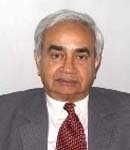Pickering in India
01 Nov, 1997 · 21
P. R. Chari analyses the visit of Thomas Pickering and its implications
Now that Thomas Pickering has come and gone an estimation is possible on what his visit means to
India
.
New Delhi
scribes and its newspaper reading public. Both have become addicted over the years to sensational headlines on page one each morning.
Pickering
strongly supported the Gujral doctrine. That's politic. ?????????????????????
US
concern with terrorism. Coming on the heels of the
US
declaration of the Harkat-ul-Ansar and LTTE as terrorist organisations, this lit a glow in Indian hearts. ????????????????????
India
's natural claim to a permanent seat on the UN Security Council,
Pickering
was circumspect. He voiced the non-committal US view that it would leave
Asia
to choose its representative by either a one-time selection or rotation or any other formula.
India
's refusal to join the NPT.
India
's spoiler role on the CTBT negotiation.
India
's hope that it could receive nuclear and high technology transfers from the
United States
, despite its unhelpful domestic laws.
Pickering
.
US
interest in
South Asia
?
New Delhi
to be climaxed by President Clinton's visit next year. This interest includes
Pakistan
and is not restricted to
India
. A greater appreciation of
South Asia
's significance seems to have developed in the second-term Clinton Administration as part of its reassessment of the post-Cold-War world. A better appreciation has also accrued that it needs to perceive Indo-US relations holistically and not through the prism of single-issues like non-proliferation or human rights.
Washington
before the
Pickering
visit. These reasons included: "â?¦democratic and economic reform taking place in the region, trade and investment opportunities, global issues such as environment, population, global warming, and security concerns". Clearly, "trade and investment opportunities" and "security concerns" top this list.
India
has been designated one of the 10 big future emerging markets with a population that would surpass
China
in A.D. 2020, and a growing middle class that is currently as large as the entire
US
population. That excites business attention everywhere.
India
's obduracy regarding the NPT, CTBT and the upcoming FMCT disturbs American sensitivities that remain psychologically highly insecure, despite being the more powerful military nation in the world.
India
declare a moratorium on further nuclear tests?
India
bargain, in short, its restraint on nuclear proliferation for high-technology transfers from the
United States
and, for that matter, other members of the various technology control regimes.
?
What happened? Hard facts are difficult to come by, speculations are a-plenty and guesswork is the name of the game. The truth is nothing substantive happened beyond a feeling-out of mutual positions of consequence to Indo-US relations. This has disappointed
?
Areas of accord
?
????????????????????? A more liberal visa agreement has been formalized, allowing businessmen and tourists to be issued visas valid for 10 years. That's cosmetic. ??????????????????????
??????????????????????
????????????????????? And he shared the?
????????????????????? On supporting?????????????
?
Persisting areas of discord
?
????????????????????? Their contrary views on intellectual property rights. ?????????????????????
????????????????????? The nuclear issue i.e.?????????????????
?
????????????????????????????????????????
?
????????????????????? And??????????????????
?
None of these discords could be papered over by
?
What explains the present heightened
?
Reassessment of Post Cold-War world
?
This is evident from the stream of high level visitors coming to
?
More specifically, the reasons for this heightened interest were enumerated in a background briefing provided in
?
Trade and investment
?
?
Security concerns
?
The situation in regard to "security concerns" is more complex. At the verbal level, the official American position has altered. It now states that Indo-US relations cannot remain hostage to their differences on nuclear disarmament issues. In reality,
?
A bargain?
?
The Indo-US discord on nuclear matters continues to remain very important to the substance of their bilateral relationship. Is a compromise possible, therefore, to foster Indo-US relations in more productive channels?
?
????????????????????? Can???????????????
?
????????????????????? Can it also declare a moratorium on further production of fissile materials for weapons purposes?????????????????????
?
????????????????????? Could the United States, in return, declare India an exception to the workings of its domestic laws that currently prohibit the transfer of nuclear and other sensitive technologies to it?????????????????
?
????????????????????? Can?????????????
?
Should this be possible, the bargain could be codified in one of the high level visits that are being scheduled for the future.
?
?


